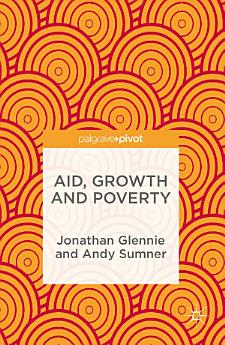Aid, Growth and Poverty
Información sobre este eBook
Acerca del autor
Jonathan Glennie is Director of Policy and Research at Save the Children UK, and Visiting Fellow at King’s College London. He has worked and written extensively on international poverty and human rights, and helped to develop Christian Aid’s now-ubiquitous critique of global tax policy. Jonathan is a regular columnist for The Guardian’s Global Development website, and is on the board of Peace Brigades International, as well as the Sheffield Institute for International Development.
Andy Sumner is Reader in International Development and Co-Director of King’s International Development Institute, King’s College London. He holds associate positions at Oxford University at the Oxford Poverty and Human Development Initiative and the Center for Global Development in Washington, DC. He has been listed in Foreign Policy Magazine’s ‘Top 100 Global Thinkers’ and is Deputy Editor and Editorial Board Member of the Journal Global Policy.





